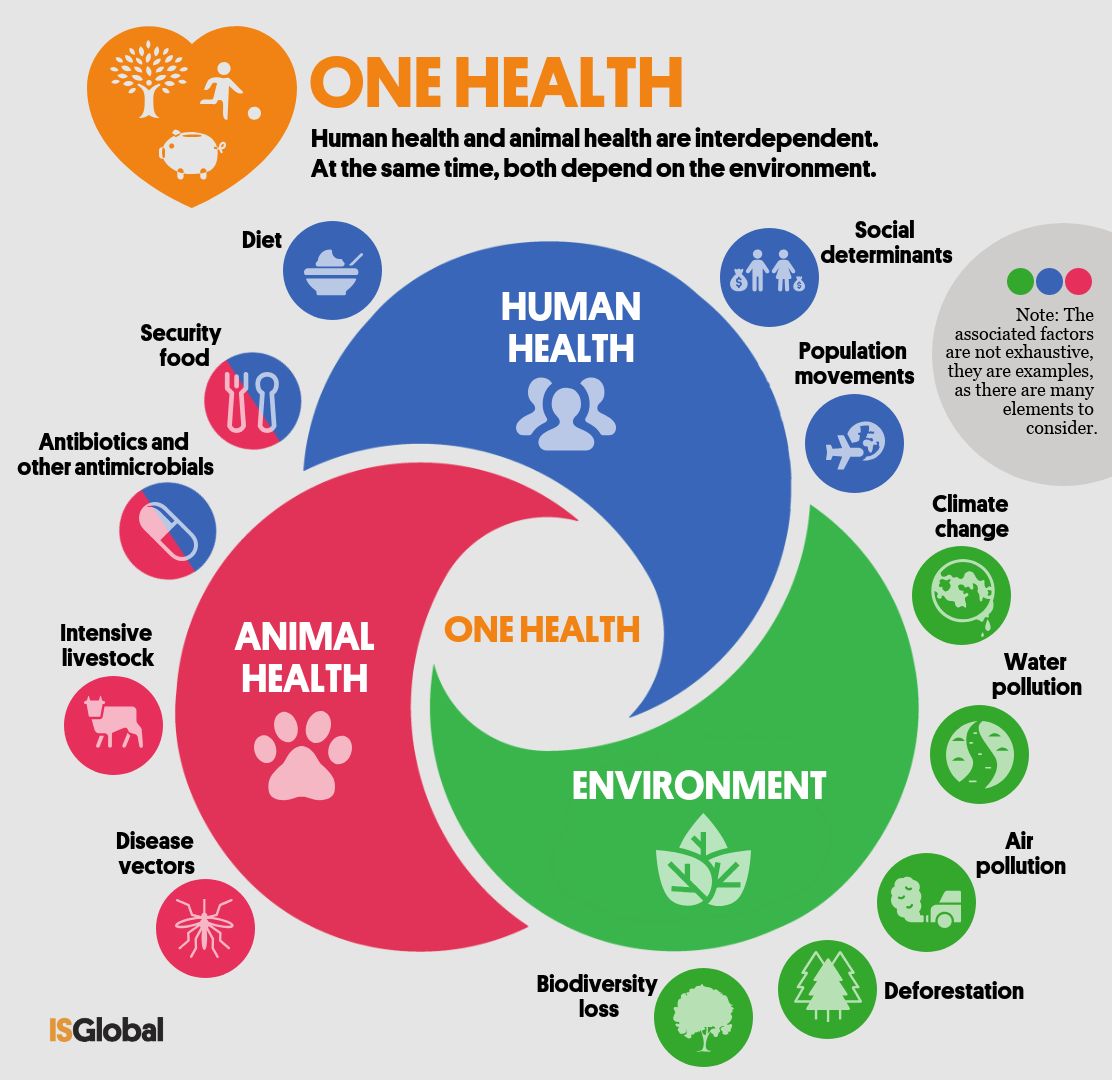What is One Health?

The One Health approach is a framework that acknowledges the intricate relationships between humans, animals, and the environment. It recognizes that the health of one sector is inextricably linked to the health of the others, and that a disease or health issue in one sector can have significant impacts on the others. For example, a disease that affects animals can also be transmitted to humans, and environmental pollution can have negative impacts on both human and animal health.
Principles of One Health
The One Health approach is guided by several key principles, including:
- Interconnectedness: The health of humans, animals, and the environment is interconnected, and a disease or health issue in one sector can have significant impacts on the others.
- Collaboration: The One Health approach requires collaboration and coordination among experts from various fields, including human medicine, veterinary medicine, ecology, and environmental science.
- Holistic: The One Health approach takes a holistic view of health, recognizing that physical, mental, and social factors all play a role in determining health outcomes.
- Prevention: The One Health approach emphasizes prevention, aiming to prevent diseases and health issues from arising in the first place, rather than just treating them after they occur.
Applications of One Health
The One Health approach has a wide range of applications, including:
- Disease surveillance and control: The One Health approach can help to identify and respond to diseases that affect both humans and animals, such as zoonotic diseases like rabies and Ebola.
- Environmental health: The One Health approach recognizes the importance of environmental health, including the impact of pollution, climate change, and other environmental factors on human and animal health.
- Food safety: The One Health approach can help to ensure food safety, by recognizing the potential for foodborne illnesses to affect both humans and animals.
- Conservation: The One Health approach can help to promote conservation, by recognizing the importance of preserving ecosystems and biodiversity for human and animal health.
Benefits of One Health
The One Health approach has numerous benefits, including:
- Improved disease surveillance and control: The One Health approach can help to identify and respond to diseases more quickly and effectively, reducing the risk of transmission and outbreak.
- Better environmental health: The One Health approach can help to reduce environmental pollution, climate change, and other environmental factors that can have negative impacts on human and animal health.
- Enhanced food safety: The One Health approach can help to ensure food safety, reducing the risk of foodborne illnesses and promoting public health.
- Conservation: The One Health approach can help to promote conservation, preserving ecosystems and biodiversity for future generations.
Challenges of One Health
While the One Health approach has many benefits, it also faces several challenges, including:
- Coordination and collaboration: The One Health approach requires coordination and collaboration among experts from various fields, which can be challenging to achieve.
- Funding: The One Health approach requires significant funding, which can be difficult to secure, particularly in resource-poor settings.
- Communication: The One Health approach requires effective communication among stakeholders, including the general public, policymakers, and healthcare professionals.
- Data sharing: The One Health approach requires the sharing of data and information among stakeholders, which can be challenging due to issues of confidentiality and intellectual property.
Frequently Asked Questions (FAQ)
- What is the One Health approach?
The One Health approach is a holistic strategy that recognizes the interconnectedness of human, animal, and environmental health. - Why is the One Health approach important?
The One Health approach is important because it recognizes the interconnectedness of human, animal, and environmental health, and can help to address complex health challenges. - What are the benefits of the One Health approach?
The benefits of the One Health approach include improved disease surveillance and control, better environmental health, enhanced food safety, and conservation. - What are the challenges of the One Health approach?
The challenges of the One Health approach include coordination and collaboration, funding, communication, and data sharing. - How can I get involved in the One Health approach?
You can get involved in the One Health approach by supporting organizations that work on One Health issues, volunteering your time and expertise, and advocating for policies that promote One Health.
Conclusion
The One Health approach is a comprehensive strategy that recognizes the interconnectedness of human, animal, and environmental health. It is a collaborative effort that brings together experts from various fields to address the complex health challenges we face today. While it faces several challenges, the One Health approach has numerous benefits, including improved disease surveillance and control, better environmental health, enhanced food safety, and conservation. By adopting the One Health approach, we can work towards creating a healthier, more sustainable future for all. As individuals, we can get involved in the One Health approach by supporting organizations that work on One Health issues, volunteering our time and expertise, and advocating for policies that promote One Health. Together, we can make a difference and create a healthier world for humans, animals, and the environment.
Closure
Thus, we hope this article has provided valuable insights into One Health approach. We thank you for taking the time to read this article. See you in our next article!